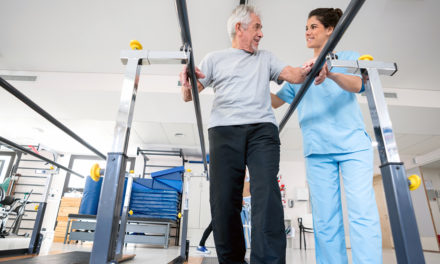The biggest thing is this: When you’re suffering from joint pain, it’s the simple things – the ones folks take for granted – that become problematic.
And as you get older, it’s those simple things that start to mean more. If you’re having joint problems, it becomes less and less enjoyable to do things you once loved. What I’ve seen is daily activities, even household tasks, becoming a chore.
Depending on which joint is causing problems, it could take tons of energy to brush your hair, eat, walk to the mailbox, or go to the grocery store. Or, it could affect recreational activities like exercise, hunting, and fishing.
The main benefits of getting a joint replacement are that pain can be alleviated and these activities can become doable, in a relatively short period of time.
A joint replacement can make a big difference – I’ve seen patients return to golfing, bowling, doubles tennis, and even light skiing after their procedure.
In terms of scheduling, I always say that your body lets you know what the right answer is. And above all, I want folks to understand that replacing a worn-down joint is a way to optimize your future.

Thaddeus Szarzanowicz, MD
Orthopedic Surgeon, Trinity Medical WNY
Dr. Szarzanowicz Addresses Common Concerns About Joint Replacement
"I'm worried I'll be a burden to family members and loved ones."
It’s important to include family members in the process to put everyone on the same page.
Patients worry about becoming a burden to somebody else, particularly when it comes to driving to appointments and therapy. Most of the time, it turns out family members want the patient to stay active and independent for as long as possible…joint replacement helps with that!
Additionally, the Catholic Health system has great resources to support family members during recovery. Visiting nurses, therapists, and caregivers can come to the home in the first weeks of recovery, then we transition to the outpatient setting.
"I think I may be a candidate for surgery, but I'm feeling very hesitant."
At Catholic Health, both Orthopedic Centers of Excellence (Sisters Hospital, St. Joseph Campus and Kenmore Mercy Hospital) offer an educational class prior to joint replacement. Patients, families, really whoever, are welcome to attend.
In my experience, it alleviates a ton of anxiety. The seminar helps get your mind in the right place, and it helps people realize that a joint replacement is not a scary situation.
Even if you’re not committed to surgery just yet, I think going to the class is a great way to help learn what to expect.
In addition to the orthopedic educators who run the class, we have a list of contacts on hand – for folks who would benefit from hearing a past patient’s perspective, rather than a surgeon’s.
"It makes more sense to put joint replacement off until retirement."
People often have a vision for their retirement… what they want to do, where they want to travel. When you lose the ability to do these things, you feel like, “this is a big problem.”
Putting off these type of procedures is never a good idea because if your joints are causing problems now, plan on them slowly getting worse. And when your general health is not at its optimum level, it puts stress on everything else.
Another reason not to wait is any additional medical conditions that develop in the meantime may affect whether you’re a candidate for surgery.
Dr. Thaddeus E. Szarzanowicz is a board-certified doctor who specializes in orthopedic surgery and sports medicine. He sees patients at Trinity Medical offices in Williamsville and Hamburg. To see office information for Dr. Szarzanowicz, click here.
Get Connected with an Orthopedic Specialist
Call (716) 706-2111
Get Connected with an Orthopedic Specialist
Call (716) 706-2111





